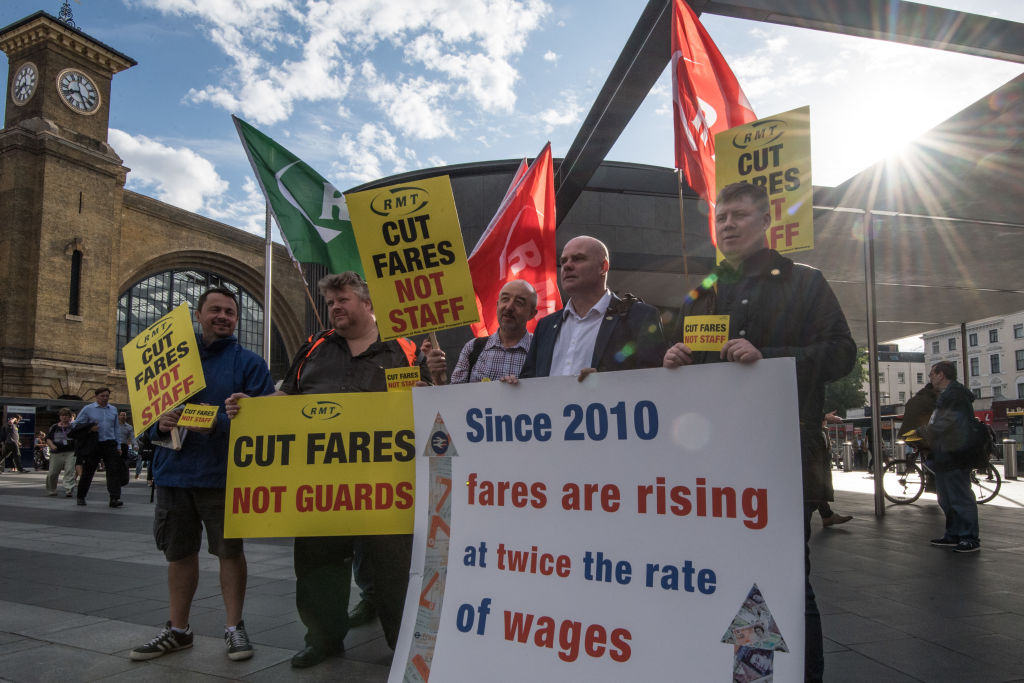Rail fares are up again, with the latest rise – of an average of 3.4 per cent – the biggest in five years. Labour are clear about who is to blame: it’s the government’s fault, according to the shadow transport secretary Andy McDonald. But whether that’s right or not, it’s inevitable that anger at this latest rise will be directed at the Conservatives – and Labour is likely to make political capital as a result of this commuter anger.
A fare rise is now an ‘inevitable ingredient of every new year’, says the Times, which points out that an annual pass to travel between Birmingham and London will now cost £10,567 – a rise of a third in the last eight years. There is ‘little wonder that there have been protests’ at this latest jump in ticket costs, argues the paper, which says that the increase dwarves CPI inflation, meaning that commuters now have to fork out even more of their earnings just to get to work. ‘Huge bonuses paid to a dozen or so rail bosses’ also add to the sense of anger, says the Times. But the paper says there is a reason to look on the bright side. Vast investment in the network means that ’this year will showcase big improvements’, predicts the paper. So while it ‘may seem unfair to commuters…much investment for the future is paid from today’s fares’. ‘High fares also save taxpayers money’, says the Times, meaning that more of the burden of the cost of railways now falls on those who actually use the service rather than the taxpayer.
But the Sun is gloomier in its outlook about the fare rise: ‘Every year millions of rail passengers are disgracefully stung by fare price hikes’. In return, the service they pay for ‘is undermined by delays, cancellations, strikes and overcrowding’, says the paper, which says that ‘passengers will rightly feel sore’ when they realise that their fare increases hit just ‘as rail chiefs get bumper pay packages’. So what is the solution? It is not nationalisation, despite what some might say, says the Sun, which says this would ‘would make it worse’. Instead, ‘exposing’ the networks ‘to competition would drive down prices’, argues the paper, which concludes by saying ‘the sooner other firms can operate on the same lines, the quicker standards will improve for millions of passengers.’
It’s true, as the rail operators are keen to point out, says the Daily Telegraph, that ‘higher costs have not deterred travellers’. It is also the case that ‘extra money from fares is needed to improve track and rolling stock’, suggests the paper. Yet there are reasons to think the current method of financing the railways might not be working as well as some suggest. Several franchise operators have run into ‘financial difficulties’, says the Telegraph, which also points out that ‘journeys by passengers using season tickets have fallen by 10 per cent’. The number of those commuting in London and the South East also appears to be tailing off, says the Telegraph – a worry for investors since ’the franchising model is predicated upon continued growth in passenger numbers’, argues the paper. The signs for the future of the railway look bleak – and in the meantime, its commuters who are increasingly footing the bill for a bad service.







Comments